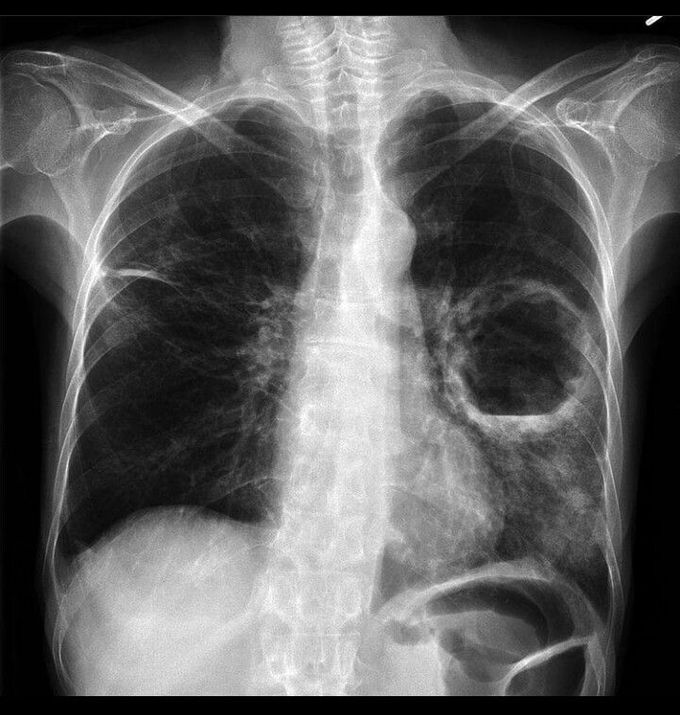

Khizra Ferozover 1 year ago

Lung Abscess
Lung abscess is defined as necrosis of the pulmonary tissue and formation of cavities containing necrotic debris or fluid caused by microbial infection. A lung abscess is usually caused by bacteria that normally live in the mouth and are inhaled into the lungs. Symptoms include fatigue, loss of appetite, night sweats, fever, weight loss, and a cough that brings up sputum. Diagnosis is usually determined with a chest x-ray. Standard treatment for a lung abscess consists of systemic antibiotic therapy, which is based on the anticipated or proven bacterial spectrum of the abscess. In most cases, primary abscesses are successfully treated by calculated empiric antibiotic therapy.
Other commentsSign in to post comments. You don't have an account? Sign up now!

